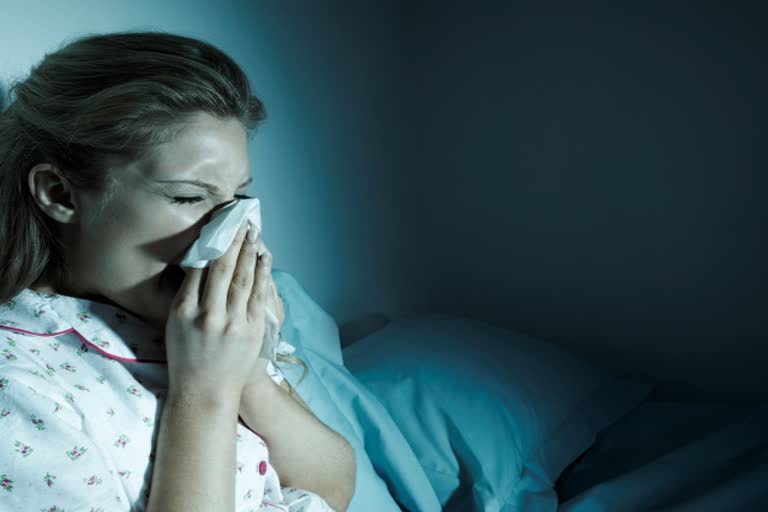Exposure to the rhinovirus, the most frequent cause of the common cold, can protect against infection by the virus which causes COVID-19, researchers have found.
The study by Yale researchers found that the common respiratory virus jump-starts the activity of interferon-stimulated genes, early-response molecules in the immune system which can halt the replication of the SARS-CoV-2 virus within airway tissues infected with the cold.
Triggering these defenses early in the course of COVID-19 infection holds promise to prevent or treat the infection, said Ellen Foxman, Assistant Professor of laboratory medicine and immunobiology at the Yale School of Medicine.
One way to do this is by treating patients with interferons, an immune system protein that is also available as a drug. "But it all depends upon the timing," Foxman said.
Interferon treatment holds promise but it could be tricky, she said, because it would be most effective in the days immediately after infection when many people exhibit no symptoms.
Also Read: How To Deal With COVID Grief And Uncertainty?
In theory, interferon treatment could be used prophylactically in people at high risk who have been in close contact with others diagnosed with COVID-19. Trials of interferon in COVID-19 are underway, and so far show a possible benefit early in infection, but not when given later.
The results were published in the Journal of Experimental Medicine. For the study, the team infected lab-grown human airway tissue with SARS-CoV-2 and found that for the first three days, viral load in the tissue doubled about every six hours. However, replication of the COVID-19 virus was completely stopped in tissue that had been exposed to rhinovirus. If antiviral defenses were blocked, the SARS-CoV-2 could replicate in airway tissue previously exposed to rhinovirus.
The same defenses slowed down SARS-CoV-2 infection even without rhinovirus, but only if the infectious dose was low, suggesting that the viral load at the time of exposure makes a difference in whether the body can effectively fight the infection.
(IANS)



